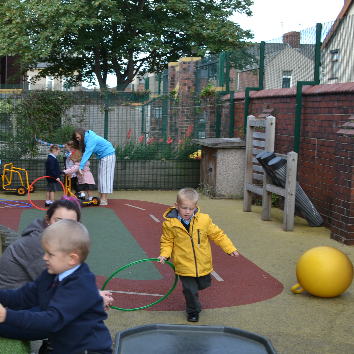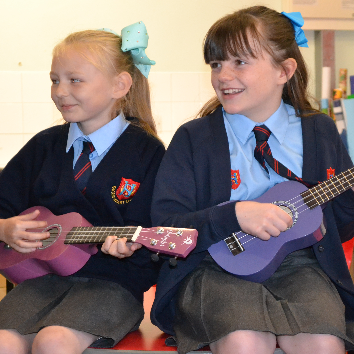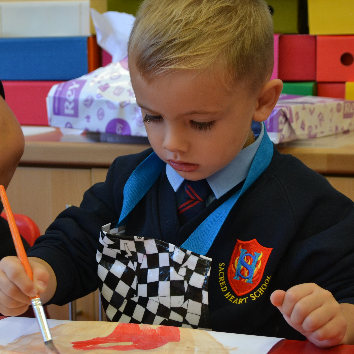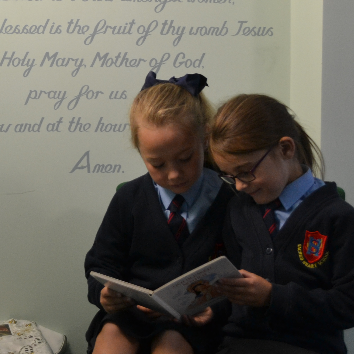Our English Curriculum
(to find out about our approach to Reading, please click here)
Called to Change
Our English curriculum is rich in language, quality texts and creativity as well as being progressive and sequenced across our year groups. We want our pupils to have an amazing future as an active and caring member of society.
We focus on improving their vocabulary, spoken language and quality texts to inspire and and enhance learning. Reading is at the heart of our school and central to children's learning. We encourage reading for pleasure so that our pupils have access to the cultural world around them and can build a habit that will last their life time.
We know that our pupils need core English skills to be able to access and understand the wider curriculum and express themselves in a variety of ways. We want our children to be clear and confident communicators who can present themselves with the correct language and prosody so that they can succeed in any role they aspire to in the future. We know that the world is changing quickly around us and want them to be equipped for jobs that possibly don't exist yet.
Intent
All children, including the most disadvantaged pupils, the most able pupils and pupils with SEND receive the same challenge within the same broad curriculum
Children develop their vocabulary and knowledge in English and across the wider curriculum to close the gap and improve reading/writing outcomes
Every lesson builds on knowledge, skills and understanding from previous lessons and prior learning in earlier year groups.
Reading is a priority across the school. It is taught using a clear and consistent language with a focus on discrete skills (VIPERS). The writing process is led and from reading and all skills support each other. Reading for pleasure is also a priority and embedded in the teaching approach and across the school.
Early reading and phonics are taught consistently and rigorously in EYFS/KS1 and the majority of children pass the PSC. Home reading books support their learning in class and start a love of and confidence in reading at a young age
Implementation
We follow Rising Stars - Reading into Writing, across the school and love the variety and quality of texts it uses to inspire and motivate our children. Please see the document below that details our curriculum
We use VIPERS to focus on the reading curriculum and ensure that our reading and writing lessons and integrated and sequenced across the term. You can see more information about our Reading curriculum on the separate page on our website.
We use Little Wandle to teach Early Reading and Phonics in Nursery, Reception, Year 1 and where needed from Year 2 and above. Please see our Early Reading page here for more information.
Oracy is a whole school priority and we work closely with Voice 21 to ensure we have it embedded in our classrooms, planning, lessons and pedagogy following a progressive and sequential spoken language curriculum. For further information on Voice 21, please click here.
Impact
All Children of all abilities achieve in all lessons. The most disadvantaged children and children with SEND are given the knowledge and cultural capital they need to succeed in
life. All children are taught a broad, rich curriculum and still achieve success in examinations and tests.
Children’s vocabulary is improved across the Key Stage and is extensive by the end of Year 6. Children can confidently access a range of texts and write interesting and engaging pieces.
Children develop their knowledge and skills in reading and writing and reach national expectations or above by the end of each Key Stage.
Children are able to read to an age appropriate level and fluency. Children can therefore access all subjects across the curriculum. Children understand the purpose of learning reading skills and can confidently apply them. Children love to read and see it as an enjoyable hobby and a necessary skill.
The majority of children pass the PSC by end of Key Stage 1. Children have a love of reading developed in EYFS/Key Stage 1 which enables them to succeed in Key Stage 2. Children can confidently access all the curriculum as a result of their reading ability
Assessment
We use PIRA and GAPS termly to assess Reading and Grammar from Year 1 to Year 6. We assess writing across the year as part of their English work and also do three independent pieces at the end of each term to contribute to teacher assessment. Year 2 and Year 6 also do SATS as part of national assessment and Year 1 take the Phonics Screening Check.
Please see our writing checklists that we use in each class to assess our pupils. We moderate termly to ensure we are accurate in our judgements.
Year 7 - life after Sacred Heart
We are part of the Mater Christi Trust and work closely with the Secondary schools in our family. We want to ensure that our children have a successful and positive transition between Key Stage 2 and 3 and are prepared for their adult life as well.
We ensure that they focus on reading a wide range of texts - this builds fluency and vocabulary, as well as general knowledge and cultural awareness that will serve them well in Key Stage 3. It also boosts their communication skills which will help them connect with all of the new people they will meet in Year 7.
We focus on their oracy skills in a range of settings including debating, presentations and discussions. This will allow them to engage on a deeper level with all their subject choices, not just English, and ensure they have the understanding and ability to share their learning and express themselves clearly.
Their time at Primary school and preparation for SATS in Year 6, ensures that they are fluent in and have mastered the knowledge and skills needed for the Key Stage 2 curriculum and are ready for accessing the Key Stage 3 curriculum in depth.

































